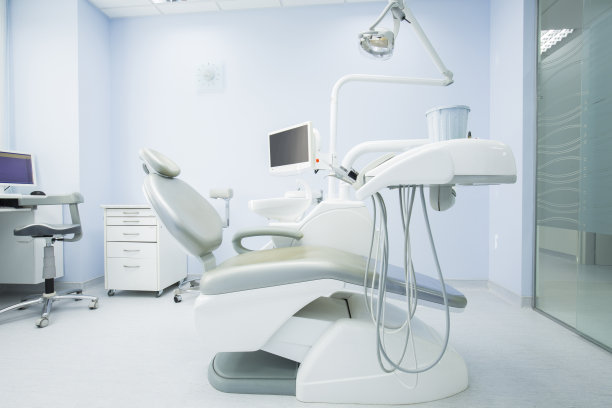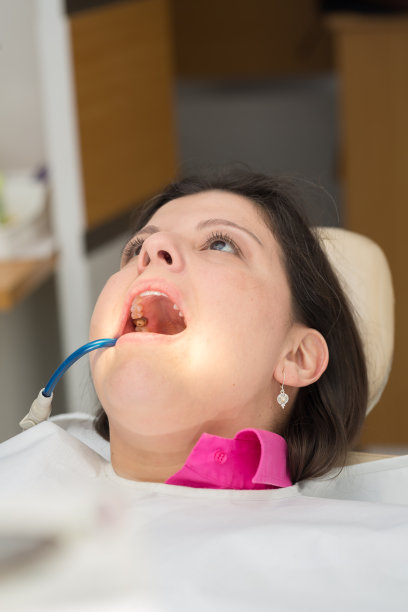Summary: This article examines the intricate connection between periodontal disease and its systemic health impacts, shedding light on how these factors influence overall well-being and quality of life. Periodontal disease, often overlooked, is not just confined to oral health but has far-reaching consequences on the body and mental state. The discussion is structured around four main themes: the biological links between periodontal disease and systemic conditions; the psychological implications of oral health issues; the economic burden associated with these diseases; and preventive measures to enhance well-being. By exploring these dimensions, we aim to provide a comprehensive understanding of how periodontal health is fundamentally intertwined with overall health and lifestyle outcomes.
1. Biological Links to Systemic Health

Periodontal disease is recognized as a significant condition that can adversely affect systemic health. Research shows that inflammation caused by gum disease can lead to or exacerbate various systemic issues such as cardiovascular disease, diabetes, and respiratory illnesses. The bacteria implicated in periodontal disease can enter the bloodstream, triggering inflammatory responses that might contribute to the progression of these systemic health conditions.
The connection between periodontal disease and cardiovascular health is particularly compelling. Studies indicate that patients with periodontal disease are at a higher risk for heart disease. The inflammation and bacteria may contribute to the buildup of plaque in arteries, leading to atherosclerosis. Consequently, maintaining oral health becomes paramount not only for dental hygiene but also for preserving heart health.
Additionally, individuals with diabetes face a bidirectional relationship with periodontal disease. Poor periodontal health can make it more challenging to control blood sugar levels, which further complicates diabetes management. This reciprocal interaction highlights the need for routine dental care as part of a comprehensive diabetes treatment plan, illustrating the broad implications of periodontal health on systemic wellness.
2. Psychological Implications of Oral Health
The psychological effects of periodontal disease are often severe and multifaceted. Individuals with periodontal issues may experience a significant decline in self-esteem, primarily due to aesthetic concerns regarding their smiles and oral attractiveness. This can lead to social withdrawal and anxiety, affecting overall mental health and quality of life.
Moreover, chronic pain associated with periodontal disease can lead to stress and depression. Individuals suffering from this condition may find it difficult to engage in daily activities or maintain social interactions due to discomfort while eating or speaking. This restriction can have a cascading effect, reducing ones sense of belonging and increasing feelings of isolation.
Furthermore, the stigma surrounding oral health issues can exacerbate mental health problems. Many people may feel embarrassed about their dental issues, which can prevent them from seeking necessary help. This barrier can create a vicious cycle of neglect, worsening both oral and mental health outcomes, making it essential to address these psychological dimensions in dental care strategies.
3. Economic Burden of Periodontal Disease
The economic implications of periodontal disease are significant and multifactorial. Treatment for advanced periodontal conditions often requires extensive dental procedures, leading to increased healthcare costs for affected individuals. This financial burden can strain personal finances and create barriers to accessing care, resulting in further deterioration of health.
Moreover, productivity loss attributed to poor oral health can impact the broader economy. Individuals suffering from periodontal disease may require sick days or struggle with decreased work efficiency due to pain or discomfort. The accumulated costs associated with lost workdays and healthcare expenditures can pose challenges not just for individuals, but also for employers and the healthcare system as a whole.
Investing in preventive dental care can mitigate these economic challenges. By emphasizing routine dental check-ups and proper oral hygiene habits, both individuals and society can potentially save money in the long run. Preventive measures reduce the risk of developing advanced periodontal disease, sparing individuals from costly treatments and improving their quality of life.
4. Preventive Measures for Enhanced Well-being
Preventive strategies for managing periodontal disease are essential in bolstering overall well-being. Regular dental check-ups and cleanings empower individuals to maintain optimal oral health and detect problems early on. Educating patients about proper brushing and flossing techniques is equally important in preventing the onset of periodontal disease.
Public health initiatives aimed at increasing awareness of oral healths importance can play a vital role in community health. Programs that provide free or low-cost dental services can help bridge gaps in access, particularly for underserved populations. Such initiatives not only promote better oral health but also contribute to overall systemic health improvements.
Furthermore, adopting healthy lifestyle choices, such as a balanced diet and smoking cessation, can significantly lower the risk of periodontal disease. By fostering holistic health practices, individuals can enhance their oral health, thereby positively influencing their systemic health and quality of life.
Summary:
The relationship between periodontal disease and systemic health impacts overall well-being and quality of life in profound ways. From biological links with chronic diseases to the psychological distress and economic burdens associated with poor oral health, the implications are extensive and intertwined. Implementing preventive measures can alleviate these issues, promoting a comprehensive approach to health that prioritizes both oral and systemic well-being.
This article is compiled by Vickong Dental and the content is for reference only.
Vickong Dental
Vickong Dental is a large medical group established in Hong Kong in 2008 by professors from well-known medical universities in Guangdong and Hong Kong, as well as medical doctors from key national '985' universities (including Master's supervisors and senior professors). The chain of branches brings together expert dentists with PhDs and Master's degrees from Hong Kong and Mainland China, committed to providing high-quality dental treatment.
"Vickong Dental Practices the University Motto of 'Healing and Serving Society,' with a Stable Operation for Sixteen Years. It Has Been honored with Hong Kong Enterprise Leaders's Choice,' and is a Global Trusted Implant Center for the Nobel Implant System. Recommended by Hong Kong Metro Broadcast and Guangdong Television, it Serves Customers from Over Thirty Countries and Regions, Gaining the Trust and Favor of Citizens from the Guangdong-Hong Kong-Macau Greater Bay Area and Surrounding Cities.

Thousands of customers' unanimous praise
The most recognized and highly recommended dental service by customers in the Guangdong-Hong Kong-Macau Greater Bay Area
We Ensure You Receive Detailed Care and Attention Here
Hong Kong standards, Shenzhen prices, Your Trusted English-speaking dentists

Vickong Dental Medical-Grade Instrument Disinfection Process
Vickong Dental Medical-Grade Instrument Disinfection Process

Vickong Dental Chain: A Warm and Comfortable Environment for Treatment






Appointment Hours

Q&A
Why choose Vickong Dental?
Vickong Dental practices the university motto 「Medicine to Benefit Society」, with each branch bringing together highly qualified dentists with doctoral and master’s degrees from Hong Kong and the Mainland, and has maintained seventeen years of steady operation。Recipient of 「2024 Hong Kong Enterprise Leaders Brand」, 「2025 Hong Kong Enterprise Leaders Brand」, a Nobel Biocare Global Trusted Implant Center, and a brand recommended by Metro Radio Hong Kong and Guangdong TV。
To date, we have served customers from more than thirty countries and regions,earning exceptionally high word-of-mouth recognition and trusted recommendations from residents across the Guangdong-Hong Kong-Macao Greater Bay Area and surrounding cities
We have eight major branches in Zhuhai、Shenzhen,and a consultation and service assurance center in Hong Kong,so you can book a free consultation at any time for any questions,which is very reassuring.
If I do not accept the quotation after the CT scan, will I be charged??
No! As long as the actual treatment has not started, you will not be charged any fees.
Will there be any additional charges during the treatment process?
No, there won’t be any additional charges. Before treatment begins, we will clearly explain the treatment plan and its corresponding fees. Only after the patient agrees and signs the consent form will we proceed with the dental service.
Can I pay in Hong Kong dollars?
Yes. Vickong Dental accepts payment in Hong Kong dollars. The amount will be converted based on the exchange rate of the day, and the applicable rate will be clearly communicated to you in advance.
Can I reschedule my appointment at any time?
Yes. Please contact us via **WeChat** or **WhatsApp** as early as possible, providing your original appointment time and details, along with your preferred new date and time slot for rescheduling.













